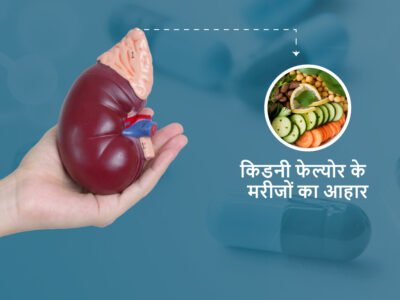When we talk about kidney failure, the kidneys usually don’t stop functioning in a single instant of time. Rather, in chronic kidney disease, the kidneys gradually lose their functionality over a long period of time. In this long period of progression of chronic kidney disease, the patient suffers more vivid symptoms as they get closer to the last stage of this disease. This is the reason it is said that the earlier this is diagnosed the better it is for the patient because early diagnosis helps in reducing the rate of progression of this disease.
To provide the optimum care to the patient, chronic kidney disease is divided into 5 stages depending upon the efficacy of the affected kidney which is determined by the glomerular filtration rate and creatinine test. In each stage of this disease, the treatment and required tests vary.
Stages of kidney disease
Stage 1:
At this stage of kidney disease, the kidney is only damaged to the extent that the glomerular filtration rate is almost unaffected. This means the GFR at this stage happens to be equal to or greater than 90ml/min. In most cases, there are no symptoms apparent in the patient in order to show them the signs of damage in the kidney. Kidney disease is a dangerous issue because at this stage most people would be unaware that their kidneys are damaged. Usually, the people who are fortunate enough to get to know about their problem at this stage, kidney disease is diagnosed coincidentally when being tested for some other health issue.
Stage 2:
In this stage of CKD, the person is said to have mild damage to their kidneys. It is said so because this damage is indicated by the slight decrease in glomerular filtration rate. The GFR of the person with stage 2 of kidney disease ranges between 60 and 89 ml/min. The patient in this stage also doesn’t show any apparent symptoms. This is because our kidneys are designed to perform a functioning job even when not at 100 percent efficiency. When a stage 2 kidney disease is diagnosed coincidentally, the signs that indicate it are:
- Creatinine in the blood exceeds its normal range
- Hematuria or proteinuria
Stage 3:
When the kidneys are moderately damaged the patient is said to have progressed to the 3rd stage of kidney disease. Stage 3 of CKD is categorized as follows:
Stage 3A:
In this phase of CKD, the glomerular filtration rate is between 45 and 59 ml/min.
Stage 3B:
In this phase of CKD, the glomerular filtration rate is between 30 and 44 ml/min.
During the progression of this stage, the patient suffers from an increase in the build-up of waste in the blood. This causes certain symptoms, such as hypertension, swelling, etc., that clearly indicate that there is some issue with the kidneys of the patient. Some symptoms of stage 3 of CKD are:
- Swelling in the feet due to fluid being retained in the body
- Tiredness
- Foamy urine
- Back pain
- Muscle cramps
Stage 4:
At this stage of chronic kidney disease, the problem is said to be advanced as the symptoms of kidney disease become very apparent and the glomerular filtration rate is reduced to 15-30 ml/min. the kidney at this stage of CKD becomes inefficient to is called non-functional. This is the reason that at the 4th stage of kidney disease, the patient is recommended to get ready to be put on dialysis until transplantation. The waste build-up in the blood increases at this stage to cause severe health issues. Due to the accumulation of protein in the blood, the patient usually has bad breath and other symptoms such as:
- Less appetite
- Concentration lag
- The feeling of numbness in the fingers
- Frothy and foamy urine
- Insomnia
Stage 5:
the other name for this stage of kidney disease is End Stage Renal Disease. This is because the 5th stage is the last stage of CKD in which the glomerular filtration drops to the level of 15 ml/min or lower than that. The functionality of the kidney at this stage becomes insufficient for the body due to which it this stated to be non-functional. This is the stage where dialysis until transplantation becomes inevitable for the patient.
Conclusion
The treatment plan for each stage of kidney disease varies. It is important to stay in regular contact with your doctor once you have been diagnosed with any stage of CKD. This is because with proper treatment, chronic kidney disease can be decelerated and one cannot deny the fact that each stage of kidney disease is better than the next one. A person should always be in touch with a good and experienced kidney doctor to lower the rate of progression of CKD.
At Alfa Kidney Care, your CKD will be treated by expert nephrologists and urologists to ensure health care.
To know more about us, contact us at Alfa Kidney Care


